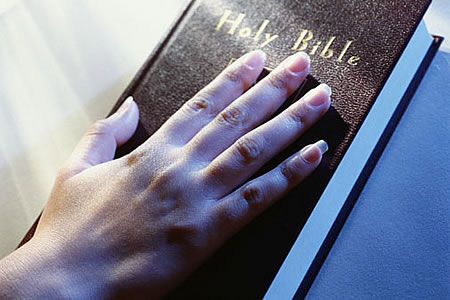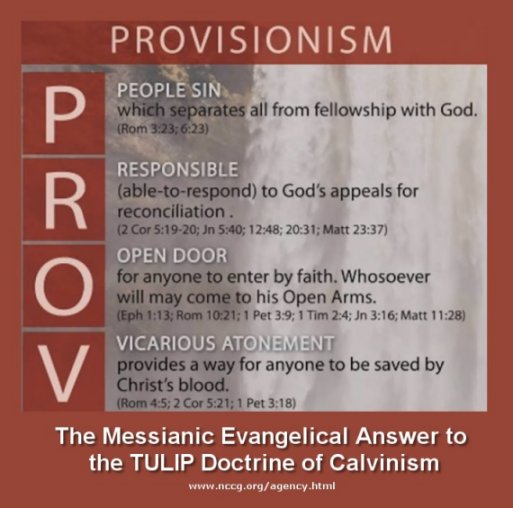
 FAQ 399
What Kind of Messianic 'Evangelical'?
FAQ 399
What Kind of Messianic 'Evangelical'?

Examining the Anglican/Wesleyan Connection

Q. When you describe yourselves as 'Messianic Evangelical', I understand that by 'Messianic' you mean someone who is a Torah-obedient 'Evangelical'. But what exactly do you mean by 'Evangelical' because there are many kinds of evangelical? I know you're not Calvinist Evangelical and that you (the founder) have an Anglican background and that many of your members come from Lutheran and Baptist backgrounds, so what kind of Messianic 'Evangelical' do you consider yourselves to be? Anglican? Lutheran? Methodist? Arminian? Please clarify.
A. Thank you for asking for this clarification as our previous statements are in constant need of refinement as newer (and better) questions are asked by investigators of this work. As you rightly point out, we are not Calvinist but neither are we wholly Arminian either (in the matter of 'total depravity') though we are closely allied to it and prefer to call ourselves Provisionists as commonly understood by Leighton Flowers, Director of Apologetics for Texas Baptists. In that way we distinguish ourselves from Calvinists.

Because people asking us for clarifications come from a variety of backgrounds we try to answer using the experience and vocabulary of those backgrounds. So on our website you will find a number of approaches including compilations of Q&A's (Questions & Answers) for the layperson as in the article, Our Beliefs Summarised for the Layman. There are also articles for those deep into theology and who want to explore all the nuances of justification and sanctification, for example. Unfortunately, Christians from different denominations, though all sharing a common vocabulary, tend to define their theological terms somewhat differently because of the historical evolution of these groups and so of necessity we must sometimes do the tedious, but important, work of carefully explaining what we mean by these terms. No better example exists than in the way Arminians/Provisionists and Calvinists use the same language but often mean entirely different things.
We believe in salvation by grace through faith (Eph.2:8) as all evangelicals do (see the 3-part series, Amazing Graces and Free Gifts), and 'once saved', we believe that we should live the mandated scriptural Torah lifestyle as articulated in the general statement made in 2008 entitled, The Messianic Evangelicals, which is the 'Messianic' component. A highly condensed article entitled, The Way of Yahweh sets out the elements of both salvation and the lifestyle of the saved in an easily remembered list of 16 Questions.
We have but one principle Creed as acknowledged by all of Christendom (Catholic, Protestant and Eastern Orthodox), namely, the Apostles Creed, and, like all denominations, have a more fleshed-out secondary creed or Statement of Faith too which together we describe as our Essential Foundation & Ground of Messianic Evangelical Faith. How this translates practically for investigators wanting to join us is covered in such articles as How Do I Join ME? Advice for Seekers after Truth, and Conditions for Membership in the Messianic Evangelical Community.
Prominent Evangelicals in the United Kingdom, Alister McGrath and John Stott, each list six distinctives of Evangelicism with which we totally agree, though we naturally add our own seventh distinctive covering the Torah lifestyle. You'll find these discussed in the article, The Six and the Missing One: The Rise and Fall of Evangelical Consumerism. But as your question is about the evangelical component of our belief system, I'll skip the messianic part.
I have to say that Messianic Evangelicals very much like the Wesleyan approach to theology, particularly as articulated by Dr.Ben Witherington, popular Methodist scholar and speaker, so let me answer your question coming from that perspective which I think you will find helpful:
- 1. As Messianic Evengelicals we can't imagine that we could ever be more merciful, compassionate or loving than Elohim (God), especially as Elohim (God) is defined in the Messianic Scriptures (New Testament) as love (1 Jn.4:8,16). This is the great mitzvah (commandment) we are to follow as we emulate Elohim (God) by wholeheartedly loving Him, our neighbour and even our enemy. Love is freely given and freely received (Mt.10:8; 1 Cor.2:12). The first and most important reason for being a believer - and in our case, as New Covenant or Messianic Evangelical believers - is because of the character of Elohim (God) as described in the Scriptures and defined as freely given ahavah (love) and chesed (mercy);
- 2. Elohim (God) is both fair, just and impartial. If Elohim (God) is fair, just and impartial, given that we have all sinned and fallen short of the glory of Elohim (God) (Rom.3:23), then on a purely justice-basis, nobody should be saved. Yahweh, our Heavenly Father, doesn't owe any of us salvation on that ground alone. So salvation is not a justice issue - judgment is and rewards for the saved are. Salvation is not a 'rights' issue either - it is a matter of the grace and mercy of Elohim (God). Which brings us back to the character of Elohim (God) which is love, mercy and grace (undeserved loving-kindness, unmerited favour). That is the nature of salvation!
- 3. As we hold that in our minds, the next thing to think about is this - what is the relationship between faith (emunah) and works? According to the Calvinists, who believe in absolute predestination or fate, 'we are saved by grace through faith alone and our actions have nothing to do with it'. I repeat, for the Calvinist, our actions have zero to do with salvation - neither before nor during conversion or afterwards. In other words, the Calvinist insists that our behaviour is not what it's about, it's only about what we believe. Our problem with that is in agreement with something the founder of Methodism, John Wesley, once said, paraphrasing: 'Have you noticed that in the Synoptic Gospels (Matthew, Mark and Luke) the demons are very orthodox - they know exactly who Yah'shua (Jesus) is but they do not trust trust that truth' nor obey its demands 'so we are not saved by it'. The point being this: it is not enough to know the truth about Elohim (God) but a question of whether you trust it enough to embrace it wholeheartedly Do you trust it? Has it transformed you?. So we fully agree with the Wesleyans who affirm that salvation is not just about notional assent or even the quantity of things you believe - rather, it's about trusting the truths about Elohim (God) and that is an activity or a 'work'! It's something you must do. This is a reason why the apostlesJames says that "faith without works is dead" (Jas.2:20,26). So there is a balance here:
- a. between faith and good works;
- b. between personal spiritual holiness and social holiness;
- c. between justification and sanctification; and
- d. between Elohim's (God's) rôle in our life and what He enables us to do on behalf of the Kingdom and for the sake of the Messianic Community (Church).
This view of the Besorah (Gospel, God News) is not truncated, it's not just about justification by grace through faith, for as John Wesley once remarked that's only the 'front porch' of religion. It's not the House! The House has to do with sanctification, with day-to-day holiness, with growing in grace and the knowledge of Elohim (God), with 'going on to perfection' (Heb.6:1), which is another way of saying with being conformed to the image of Yah'shua the Messiah (Jesus Christ) (Rom.8:29).
This is the goal - the goal is not merely to be saved by grace through faith but to be conformed to the image of Christ or becoming like Him, and that requires our own participation. That's why Paul says in Philippians 2:15 to have this mind in yourself that was also in Messiah Yah'shua (Christ Jesus) who, being in the very nature of Elohim (God), did not think equality with Elohim (God) something to be taken advantage of but instead He stripped (emptied) Himself and took on the form of a human being, even a slave amongst human beings, and He was obedient even unto death on the cross and that is why Elohim (God) highly exalted Him (Phil.2:6-11) What Paul is setting up here is a paradigm that he believes Christians/Messianics can follow. He believes, by the grace of Elohim (God), that the imitation of Christ is possible. He believes that Elohim's (God's) grace is powerful enough to not only initially transform us in the main saving event leading to spiritual regeneration, but to continually transform us into His qadosh (holy, set-apart) image.
What is so strange about Calvinistic theology (that on the Internet in particular is working hard to dominate the evangelical landscape to establish itself as the Gospel) is that Calvinists talk so much about 'sovereign grace' and yet at the end of the day they don't believe that the grace of Elohim (God) can dramatically transform a person even beyond conversion. They don't believe that the love of Elohim (God) can cast out all fear from our life (1 Jn.4:18) or that it can cleanse us of all sin (1 Jn.1:7) in our life. To Messianic Evangelicals that is very strange indeed because the Besorah (Gospel, Good News), as also understood by the Wesleyans, is the most optimistic about the sovereignty, power and grace of Elohim (God) and that is the main reason we believe what we do.
So as far as the 'evangelical' component of Messianic Evangelical is concerned, I would say we most closely approximate the view of the Wesleyan Methodists which was itself a reformation of the mildly Calvinistic Anglican Church before becoming a denomination all of its own when the Anglican state church rejected Wesley's teachings. Of course, we don't believe Wesleyanism went far enough in its act of reformation. Amongst other things, it retained Anglicanism's infant baptism and baptism-by-sprinkling instead of going further as the Baptists did who restored adult baptism by full immersion. And neither it, nor the Baptists, put aside the pagan traditions of 'orthodox' Christianity such as Christmas, Easter or the Roman calendar, or restore proper Torah-obedience, some reasons we are not Wesleyan. Most of today's Methodists have totally apostacised embracing both the modernist liberal and and postmodernist 'woke' false gospels like the contemporary Anglican Church, a sad ending to what was a very important movement of Elohim (God) in its time.
As you have probably picked up, we have tremendous respect for traditional Methodism and believe it's approach to evangelicism in general to be broadly the correct one. There are other areas we disagree with the Methodists about, such as the nature of hell but that, as they say, is an entirely different topic.


